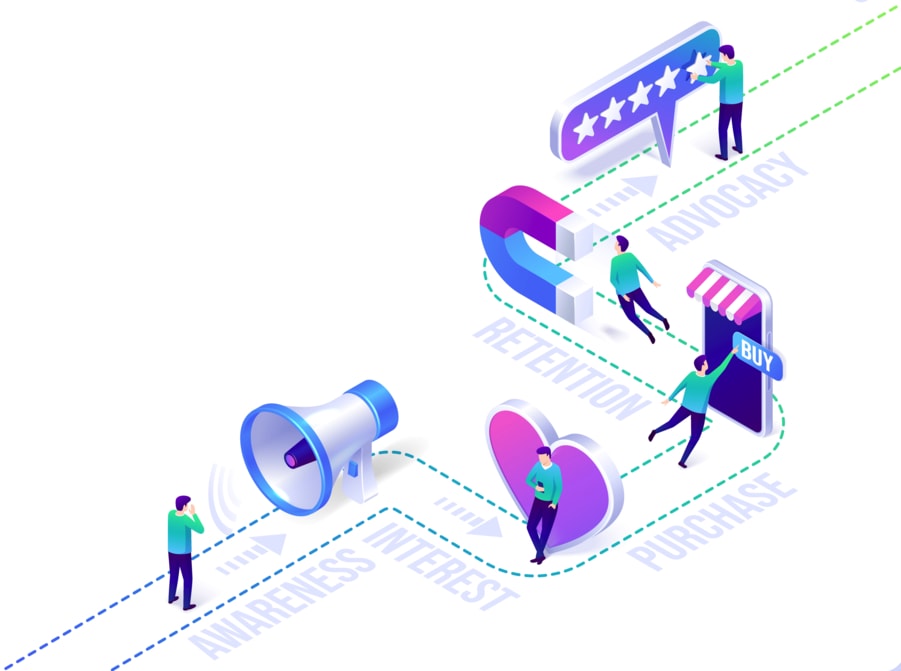Sales operations and sales enablement are two critical functions in any sales-driven organization. Though they share some similarities, there are also some differences between the two. To ensure your business uses the right resources to drive success, it’s important to understand the key distinctions between these two positions.
In this post, we’ll take a closer look at what sales operations and enablement do, explore the similarities and differences between the two roles, and provide tips on choosing which one is best for your business. Let’s get started!
What is Sales Enablement?
Sales enablement is a term used to describe the activities and processes that help salespeople sell more effectively. It includes providing salespeople with the tools, training, and information they need to succeed. The sales enablement technology stack typically includes CRM, content management, and document management systems.
The operations and sales enablement functions are similar in that they support the sales organization and help it run more smoothly. If you have a sales enablement teams, their primary focus is helping salespeople sell more effectively. This includes providing them with the resources they need to succeed, such as training, information, and tools. The sales enablement team also works to develop and implement processes that will help the sales team close more deals.
What are Sales Operations?
Sales operations are the division within a company responsible for managing the sales process and ensuring that it runs smoothly. This includes developing and enforcing sales policies, overseeing sales training, managing customer data, and more. In the sales operations roles, you would work closely with the sales team and other departments such as marketing, customer service, and IT to ensure that everyone is on the same page and that the sales process is running smoothly.
To succeed, sales operations team must have a deep understanding of the sales process and be able to identify and solve any problems that may arise. Every business is different, so the exact tasks under sales operations will vary from one company to the next.
Similarities Between Sales Enablement and Sales Operations
Although both sales enablement and sales operations share the goal of improving sales performance, the two functions have several other key similarities as well.
Aligning with the buyer’s journey
Sales enablement and operations are focused on aligning the seller’s activities with the buyer’s journey. The buyer’s journey is the process that buyers go through when making a purchase, from awareness of a need or problem to considering alternative solutions to finally taking action and making a purchase.
Sales enablement works to equip sellers with the resources they need at each stage of the buyer’s journey, such as educational content for the awareness stage or product demonstrations for the consideration stage. On the other hand, sales operations ensure that sellers follow best practices and use approved methods and processes at each stage of the buyer’s journey.
Using data to drive decisions
Both sales enablement and sales operations use data to drive decisions. You need to track the right sales enablement KPIs but also the sales operations ones. Data is essential for understanding what’s working and what isn’t, and it can be used to improve both functions.
Sales enablement uses data to understand which resources are most effective at each stage of the customer’s journey and how sellers use them. Sales operations use data to understand which processes are most effective and where there are bottlenecks or areas of improvement.
Improving sales performance
The primary goal of sales enablement and sales operations is to improve sales performance. Applying time management hacks for your sales reps can do wonders. By definition, sales enablement is “the process, people, technology, and content that equip a seller with the ability to have an effective customer conversation.” On the other hand, sales operations are “the creation and execution of the strategic plan that will enable the sales force to meet its objectives.”
Both functions improve sales performance by ensuring that sellers have the resources they need to succeed. This may include providing access to training and development opportunities, coaching and feedback, the latest technology and tools, relevant market intelligence, and quality leads.
Managing change
Both sales enablement and sales operations play a role in managing change. Change is inevitable in any organization, and both functions must be prepared to manage it effectively.
Sales enablement manages change by ensuring sellers have the resources they need to adapt to new products, processes, or policies. Sales operations manage change by ensuring that changes are implemented smoothly and efficiently and that any negative impacts on sales performance are minimized.
Collaborating with other teams
Sales enablement and operations need to collaborate with other teams to succeed. Sales enablement often works closely with marketing, for example, to ensure that sellers have the latest product information and collateral.
Sales operations often work closely with IT, for example, to ensure that new processes are implemented smoothly, and that data is being collected and used effectively. As the sales reps are the ones interfacing with customers, both departments need to ensure that they are aligned with each other and with other teams in the organization.
Do you need help to boost sales enablement and sales operations for revenue growth?
Differences Between Sales Enablement and Sales Operations
Now you know the similarities between sales enablement and sales operations, let’s explore their differences.
Scope of responsibility
The biggest difference between sales enablement and sales operations is the scope of responsibility. Sales enablement is focused on equipping sellers with the resources they need to succeed, while sales operations focus on ensuring that sellers use those resources effectively. The sales team is responsible for selling, and the operations team is responsible for ensuring they are selling effectively.
The skill set required
Another difference between sales enablement and sales operations is the skill set required for each role. Sales enablement requires various skills, including content marketing, training, and project management. On the other hand, sales operations require more analytical skills, such as data analysis and process optimization. As the sales process becomes more complex, sales operations may also require some skillset overlap with sales enablement. With the right tools and processes, sales operations can be a powerful force for streamlining and optimizing the sales process.
The approach to sales
The third difference between sales enablement and sales operations is the approach to sales. Sales enablement takes a top-down approach, working with leadership to align selling strategies with business goals. Sales operations take a bottom-up approach, working with sellers to ensure they follow best practices. Plus, sales operations will take on a more strategic role in the organization to improve sales productivity. The sales managers manage and coach the sales reps, whereas the sales ops team provides the managers with the data and tools they need to succeed.
The role of technology
The fourth difference between sales enablement and sales operations is the role of technology. Sales enablement focuses on using technology to improve the seller experience, such as by providing sellers with self-service resources or automating repetitive tasks. Sales operations are focused on using technology to optimize the sales process, such as by ensuring that data is being collected and used effectively or by automating sales processes. As the sales process becomes more complex, sales operations may also require some technology overlap with sales enablement.
Boost your sales enablement and sales operations to increase your revenue now!
The focus of activities
Another difference between sales enablement and sales operations is the focus of activities. Sales enablement is focused on activities that help sellers be more successful, such as training and content development. Sales operations are focused on activities that help the sales team run more efficiently, such as order processing and data entry.
Every sales manager wants a productive and efficient sales team, but the focus of activities will differ depending on whether you are in sales enablement or operations.
The way they measure success
The final difference between sales enablement and sales operations is how they measure success. Sales enablement measures success by the number of sellers equipped with the resources they need to succeed. Sales operations measure success by the number of closed sales and the efficiency of the sales process. The sales training program may be successful, but if it doesn’t result in more sales, it is not considered successful from a sales operations perspective.
So, these are the key differences between sales enablement and sales operations. As you can see, both roles are important in a sales organization but have different focus areas.
Suppose you’re looking to improve your sales organization; it’s important to understand each function’s role. By understanding the similarities and differences between sales enablement and sales operations, make sure you have the right mix of skills and resources to achieve your sales goals.
Final Words on Sales Enablement vs. Sales Operations
Sales enablement and operations are terms that are often used interchangeably, but they refer to different concepts. Sales enablement is all about giving salespeople the tools and resources they need to succeed, while sales operations are more focused on the process and infrastructure of the sales organization. While there are some similarities between the two, there are also some key differences.
But it all depends on the organization’s priorities, structure, and needs. Both sales enablement and sales operations are important functions within a sales organization. The key is to understand the similarities and differences between the two and choose the right mix of activities to help your organization reach its goals.
Growth Hackers is certainly one of the best sales funnels agencies helping businesses from all over the world grow. There is no fluff with Growth Hackers. We help entrepreneurs and business owners improve sales enablement and sales operations, generate qualified leads, optimize their conversion rate, gather and analyze data analytics, acquire and retain users and increase sales. We go further than brand awareness and exposure. We make sure that the strategies we implement move the needle so your business grow, strive and succeed. If you too want your business to reach new heights, contact Growth Hackers today so we can discuss about your brand and create a custom growth plan for you. You’re just one click away to skyrocket your business.








